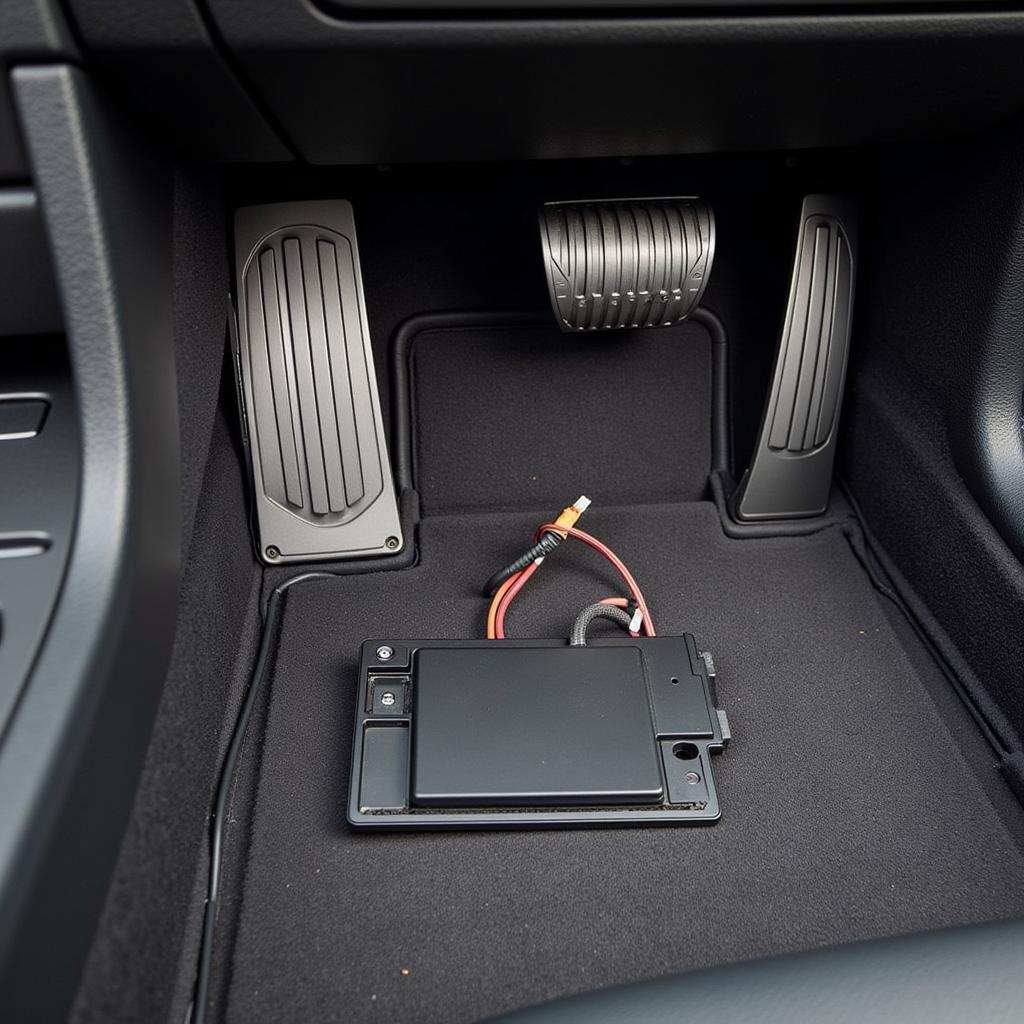Experiencing strange noises coming from your BMW’s doors? Don’t ignore them. While some sounds might be minor annoyances, others could indicate serious problems that affect your safety and the longevity of your vehicle. This guide dives into common BMW door sound issues, their potential causes, and how you can address them.
Common BMW Door Sounds and Their Causes
BMWs are known for their solid build quality, but like any vehicle, they’re not immune to wear and tear. Here are some common door-related noises you might encounter:
1. Clicking or Popping When Opening or Closing
- Door Latch Issue: Over time, the door latch mechanism can accumulate dirt, grime, or wear down. This can cause a clicking or popping sound when you open or close the door.
- Worn Door Striker: The door striker is the metal plate on the car’s body that the door latch grabs onto. If it’s misaligned or worn, it can cause noises.
2. Rumbling or Wind Noise at Speed
- Damaged Door Seal: The rubber seals around your door play a crucial role in keeping wind and road noise out. If they’re damaged, cracked, or worn, you might hear a rumbling or whistling sound while driving at higher speeds.
- Loose Window Trim: Trim pieces around the window can become loose, allowing air to seep through and create noise.
3. Rattling or Buzzing From Inside the Door
- Loose Interior Components: Loose screws or clips holding interior door panels, speakers, or window regulators can cause rattling, especially over bumps or at certain frequencies.
- Worn Window Regulator: A worn window regulator can cause a grinding or buzzing noise when raising or lowering the window.
4. Grinding or Scraping When Using Power Windows
- Window Regulator Malfunction: A failing window regulator is a common cause of grinding noises when operating the power windows.
- Obstruction in Window Track: Dirt, debris, or even a misaligned window can obstruct the window track, leading to scraping sounds.
5. Beeping Sounds
- Door Ajar Warning: This is usually accompanied by a warning light on your dashboard. It indicates that a door isn’t properly closed, often due to a faulty door latch sensor.
Diagnosing and Fixing BMW Door Sound Issues
While some door sound problems might seem straightforward, it’s crucial to diagnose the issue correctly before attempting any repairs. Here’s a general approach:
- Identify the Specific Sound: Pay close attention to when and where the sound occurs. Is it when you open/close the door? At certain speeds? When using specific features like power windows?
- Inspect Visually: Check the door seals, latches, strikers, and interior panels for any visible signs of damage, wear, or looseness.
- Test Door Components: Try operating the door handles, latches, and power windows while listening for any abnormal sounds.
- Seek Professional Help: If you can’t pinpoint the problem or are uncomfortable with DIY repairs, it’s best to consult a qualified BMW mechanic or specialist.
Remote Software Solutions for BMW Door Issues
In today’s technologically advanced automotive landscape, some BMW door problems can be diagnosed and even fixed remotely using specialized software.
Example: Imagine your BMW is experiencing intermittent door ajar warnings, but you can’t seem to find a mechanical issue. A remote diagnostics specialist might be able to connect to your car’s computer system, analyze the door sensor data, and potentially recalibrate the sensor remotely – saving you a trip to the workshop.
2001 bmw 325i audio specifications demonstrate the increasing complexity of automotive electronics. As cars become more connected, remote diagnostics and software solutions will play a larger role in addressing various issues, including those pesky door sounds.
When to Contact Cardiagtech
If you’re experiencing persistent or concerning door sounds with your BMW, don’t hesitate to contact Cardiagtech. Our team of expert technicians specializes in remote diagnostics, programming, and software-based solutions for a wide range of BMW models. We can help you identify the root cause of your door problems and provide effective solutions, often remotely.
bmw z4 sound system upgrade showcases our commitment to providing top-notch audio solutions for BMW vehicles, and our expertise extends to all aspects of BMW electronics and diagnostics.
Contact us today at:
Phone: +1 (641) 206-8880
Email: CARDIAGTECH[email protected]
Office: 276 Reock St, City of Orange, NJ 07050, United States
FAQs About BMW Door Sounds
1. Can I fix a misaligned door striker myself?
While minor adjustments might be possible, it’s generally recommended to have a professional adjust the door striker to ensure proper alignment and prevent further damage.
2. How often should I lubricate my door hinges and latches?
It’s a good practice to lubricate them every six months or during your regular car maintenance.
3. Are aftermarket door seals as good as OEM ones?
While aftermarket options are available, OEM seals are often designed specifically for your BMW model and tend to provide a better fit and longevity.
4. Can a faulty door lock actuator cause strange sounds?
Yes, a failing actuator can make clicking, grinding, or buzzing noises, especially when using the remote locking/unlocking function.
5. My bmw 1 series alarm sound is also acting up. Could this be related to a door issue?
Yes, a malfunctioning door latch sensor can trigger false alarms. If you suspect this, it’s crucial to have it diagnosed and fixed promptly.
6. I’m considering an alpina bmw f30 hifi audio upgrade. Could this affect my door speakers?
It’s possible. A professional audio installer will ensure proper speaker installation and any necessary modifications to the door panels to accommodate the upgrade.
7. My bmw e60 audio system upgrade seems to have caused some rattling in my door. What should I do?
If you recently upgraded your audio system and notice new rattles, it’s possible that some components weren’t secured properly or that the new speakers are causing vibrations. Consult your audio installer or a qualified technician to address the issue.

